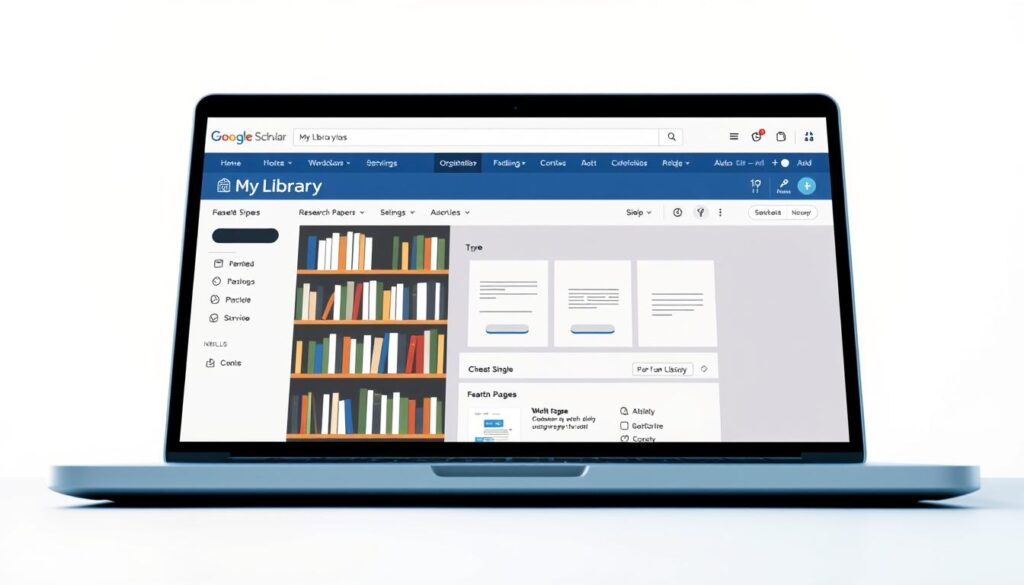How to Use Google Scholar for Smarter Research
Conducting research can be a daunting task, especially with the vast amount of information available online. Google Scholar is a valuable tool that offers free access to a wide range of scholarly articles and research papers, making it an essential resource for academics, students, and researchers.
By utilizing Google Scholar, researchers can streamline their research workflows, find relevant and credible sources, and enhance their overall research experience. This tool is designed to help users navigate the complex world of academic research, providing a more efficient and effective way to discover new information.
With its user-friendly interface and vast repository of scholarly content, Google Scholar is an indispensable resource for anyone looking to conduct smarter research.
What is Google Scholar and Why Use It?
Google Scholar stands out as a premier academic search engine, simplifying the research process for scholars and students alike. It is a free online tool that helps users find research papers, articles, books, and other academic sources written by professionals on almost any topic.
Google Scholar’s vast library of academic content is ranked based on relevance and importance, making it easier for researchers to find credible sources. Its intuitive interface and specialized functions provide full-text access to articles, enhancing the research experience.

One of the key benefits of using Google Scholar is that it saves time and improves research efficiency. By providing access to a broad range of academic literature in one place, researchers can quickly identify relevant studies and publications. This streamlined research process enables users to focus on analyzing and interpreting the information rather than spending hours searching for it.
Furthermore, Google Scholar’s ability to provide citations and link to related articles facilitates a more comprehensive understanding of the research topic. This feature is particularly useful for those conducting in-depth research, as it allows them to explore different perspectives and build upon existing knowledge.
In summary, Google Scholar is an invaluable resource for anyone involved in academic research. Its user-friendly interface, extensive database, and advanced features make it an essential tool for conducting smarter research.
Getting Started with Google Scholar
Effective research with Google Scholar begins with mastering its search functionality. To get the most out of this powerful tool, users need to understand how to use the search bar effectively, utilize the available search options, and navigate the side menu to refine their search results.
Using the Search Bar: The search bar is the primary interface for conducting searches on Google Scholar. Users can input keywords, article titles, or author names to initiate their search. For more precise results, it’s advisable to use specific keywords related to the research topic.

The side menu in Google Scholar allows users to refine their search results based on various parameters such as date, author, and publication. By effectively utilizing these options, researchers can narrow down their search to the most relevant results.
Utilizing Search Options: Google Scholar provides several search options that can enhance the research experience. These include the ability to search within specific date ranges, citations, and related articles. Mastering these options can significantly improve the efficiency of the research workflow.
By understanding and leveraging these features, researchers can optimize their use of Google Scholar, leading to more effective and efficient research outcomes. This not only streamlines the research process but also enhances the quality of the research conducted.
How to Use Google Scholar for Smarter Research
Effective research with Google Scholar involves more than just searching; it requires strategy and precision. To get the most out of this powerful tool, you need to employ strategic keyword utilization and understand how to harness its advanced features.
One of the key strategies for smarter research with Google Scholar is using Boolean operators. By combining keywords with operators such as “AND,” “OR,” and “NOT,” you can refine your search results to include exactly what you’re looking for while excluding irrelevant information.

Another crucial technique is phrase searching, which allows you to find exact matches by enclosing your search terms in quotation marks. This is particularly useful when looking for specific phrases or titles.
Phrase Searching and Filtering by Publication Date or Author Affiliation
In addition to phrase searching, Google Scholar provides filters that can significantly enhance the relevancy of your search results. You can filter by publication date to focus on the most recent research or by author affiliation to explore studies from specific institutions.
By combining these strategies—strategic keyword utilization, Boolean operators, phrase searching, and filtering—you can conduct smarter research with Google Scholar. This not only saves time but also ensures that your research is comprehensive and relevant.
To further enhance your research, explore Google Scholar’s advanced search features and tips. By mastering these tools, you’ll be able to uncover valuable insights and stay up-to-date with the latest developments in your field.
Advanced Search Strategies
Unlock the full potential of Google Scholar by mastering its advanced search features. Google Scholar’s advanced search capabilities allow users to conduct discipline-specific or publication-specific searches, making it easier to find relevant information.
To start, navigate to the advanced search page on Google Scholar. Here, you can refine your search by entering specific keywords, authors, or publication titles. You can also exclude unwanted terms to narrow down your results. This feature is particularly useful when dealing with broad or ambiguous search terms.
One of the key benefits of Google Scholar’s advanced search is the ability to customize your search results. You can choose to display results from specific academic disciplines or scholarly publications, ensuring that your research is focused on the most relevant sources.
Customizing Your Search
By utilizing the advanced search features, you can also specify the date range of your search, helping you to stay up-to-date with the latest research or focus on historical context as needed.
Mastering Google Scholar’s advanced search strategies can significantly enhance your research techniques, allowing you to uncover valuable insights and information that might otherwise remain hidden.
Managing Your Research Workflow
Google Scholar’s “My Library” feature revolutionizes the way we manage research. This powerful tool allows users to save articles, organize them into custom folders, and access them from anywhere, making it easier to manage research workflows efficiently.
To start using “My Library,” simply search for a topic on Google Scholar, and when you find a relevant article, click on the star icon to save it to your library. You can then organize your saved articles into custom folders, making it easy to revisit and reference them later.

Organizing your research becomes a breeze with Google Scholar’s “My Library” feature. You can create folders based on topics, projects, or any other category that suits your research needs. This helps in keeping your research organized and easily accessible.
Moreover, since “My Library” is cloud-based, you can access your saved articles and folders from any device with an internet connection. This flexibility is particularly useful for researchers who work across multiple locations or collaborate with others.
By utilizing Google Scholar’s “My Library” feature, researchers can streamline their workflow, reduce time spent on organizing research, and focus more on the actual research and analysis. This feature is a testament to how Google Scholar is designed to support researchers in their work, making it an indispensable tool for academic and professional research.
Conclusion
By mastering Google Scholar and its various features, researchers can significantly enhance their research efficiency and productivity. Google Scholar provides an intuitive interface and advanced search features that streamline the research process, allowing users to focus on smarter research.
Effective use of Google Scholar enables researchers to refine their search queries, manage their research workflow, and stay up-to-date with the latest developments in their field. This leads to improved research efficiency and a more productive research experience.
To get the most out of Google Scholar, apply the strategies outlined in this article to your own research workflow. With Google Scholar, you can take your research to the next level, achieving smarter research and greater research efficiency.






